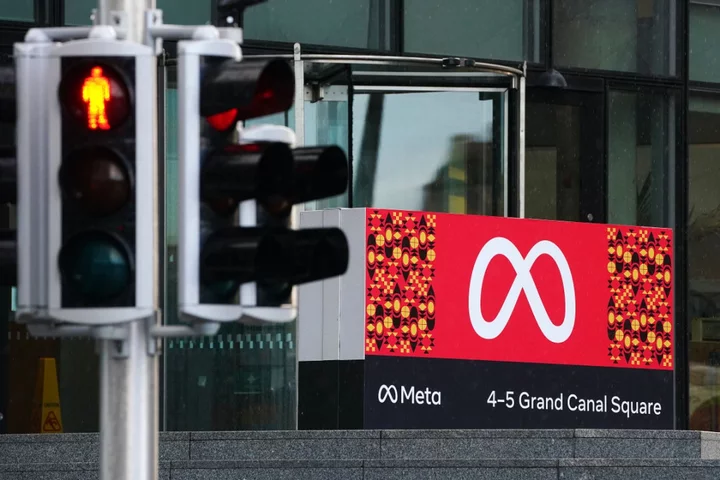
Meta Ireland to cut about 490 jobs
Facebook owner Meta is to make approximately 490 full-time employees redundant across its Irish operations. The roles are being cut from a number of teams including finance, sales, marketing, analytics, operations and engineering. Employees at Meta Ireland were notified on Wednesday they were potentially impacted by a global restructuring which was announced by CEO Mark Zuckerberg earlier this year. In March, Meta revealed it plans to cut about 10,000 jobs globally, just four months after it axed 11,000 workers. The company said it will comply with Irish legal requirements in relation to redundancy timelines and processes. Meta, which is also the parent company of Instagram and WhatsApp, said the decision does not impact its “commitment to Ireland”, adding it will continue to be the international headquarters and base for several important company functions. The final number of redundancies will be determined by a collective consultation processes.
2023-05-24 22:23
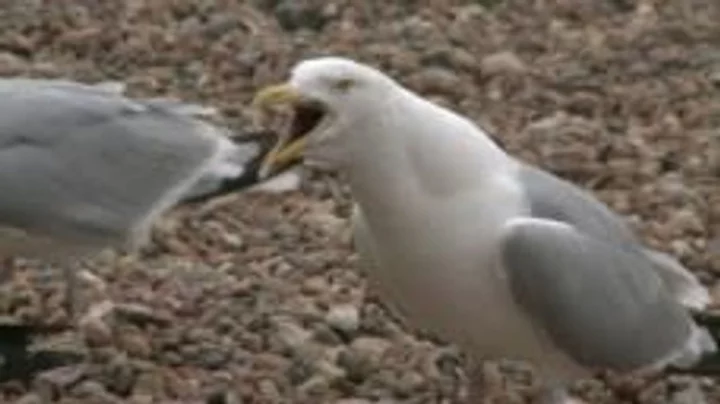
Scientists discover why gulls always prey on people's food
Anyone who has braved a stroll along England's coastline will be aware of seagulls' tyrannical regime. They prey on people eating chips, they swoop down on unsuspecting holidaymakers licking an ice cream, and they can be quite aggressive indeed. And now, terrifying research has revealed that they are more calculating than you may have previously thought. A University of Sussex study on herring gulls at Brighton beach found that the birds choose what to eat by watching what humans are enjoying. Scientists taped green (salt and vinegar) and blue (cheese and onion) packets of Walkers crisps to tiles and placed them a few metres from gulls on Brighton beach and filmed the birds’ behaviour from a distance. In some cases, the researchers ate from one of the bags of crisps. When the scientists didn't eat, less than a fifth of gulls approached the crisp packets placed nearby. But when the researchers were snacking on crisps, 48 per cent of the birds came to check out the packets. Nearly 40 per cent of such approaches ended with gulls pecking at the crisp packets, and of these, 95 per cent were directed at the same colour packet as the scientist was eating from. Sign up to our free Indy100 weekly newsletter “We’ve shown that adult gulls are able to pay attention to the behaviour of humans and apply that to their own foraging choices,” said Franziska Feist, a biologist and first author on the study. “Given that the urbanisation of gulls is very recent, this ability must come from the gulls’ general smartness and behavioural flexibility.” “It is likely that simply deterring the public from directly feeding gulls may not be enough,” Feist said. “They are still able to observe what we eat and that would inform their ability to target waste, litter and so on.” Dr Madeleine Goumas, an expert on herring gulls at Exeter University who was not involved in the study, said: “We already know from previous research that gulls use information from people when they’re searching for food. “This study shows that we aren’t only drawing gulls’ attention to where food is, but they also learn about the type of food we’re eating. Knowing this may have implications for how we reduce negative interactions between humans and gulls, as we seem to be inadvertently teaching gulls to exploit new food items.” Meanwhile, past alarming research revealed that gulls prefer food that has been touched by people. Overall, it's giving Alfred Hitchcock's The Birds. Have your say in our news democracy. Click the upvote icon at the top of the page to help raise this article through the indy100 rankings.
2023-05-24 22:19

Chipmaker Analog Devices' weak forecast sparks share selloff
(Reuters) -Analog Devices Inc said on Wednesday that a turbulent economy would weigh on its third-quarter results, sending the chipmaker's
2023-05-24 21:46

Alibaba unit ordered to pay NetEase $7.2 million over game copyright
By Josh Ye HONG KONG (Reuters) -A Chinese court has ordered an Alibaba Group unit that developed the hit mobile
2023-05-24 20:57
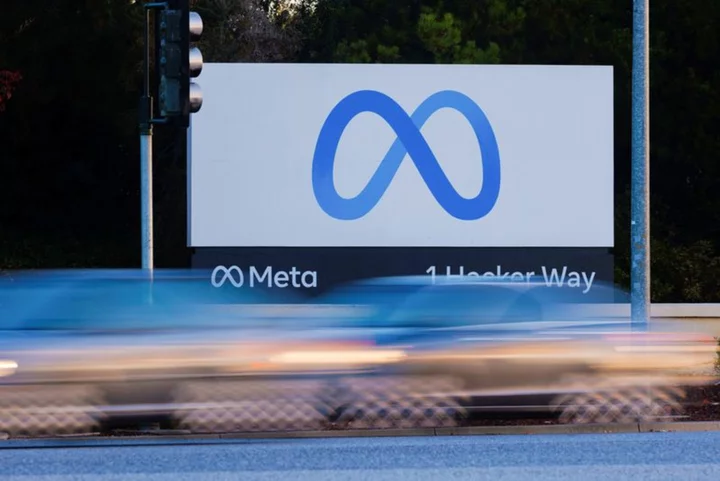
Facebook owner Meta starts final round of layoffs
By Katie Paul NEW YORK (Reuters) -Meta Platforms Inc started carrying out the last batch of a three-part round of
2023-05-24 20:28
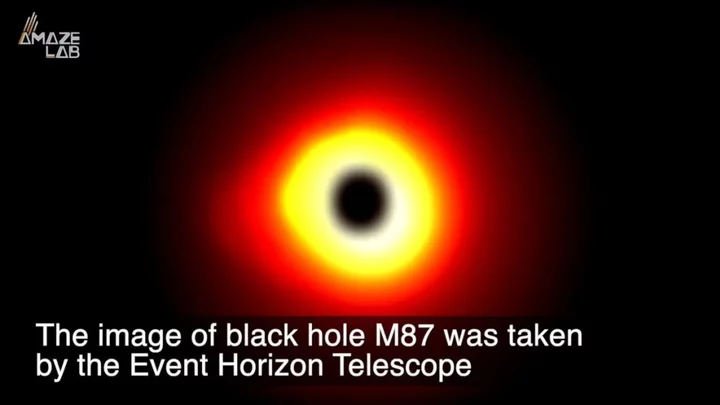
Black holes could contain 'hidden spacetime structures'
Black holes are the most confusing things out there in the universe and no-one really knows what they are – at least, that’s our very basic grasp of it. Now, though, a new study has posited a theory that black holes are structures created by unseen cosmic dimensions - or topological stars. And just to make it a little more confusing, these topological stars exist purely in the hypothetical realms of mathematics. Researchers at Johns Hopkins University have been exploring string theory, which posits that particles in the universe are actually tied to extra (hidden) dimensions through vibrating strings. Sign up to our free Indy100 weekly newsletter According to their findings, hypothetical topological stars could exist for real in the universe and they’re essentially formations of nothing which could appear in space. The study finds that topological stars would appear “remarkably similar to black holes in apparent size and scattering properties, while being smooth and horizonless”. The study, which was published in Physical Review D, found that these stars which until now have only existed in hypothetical form, look an awful lot like the black holes out in the universe. “String theory is a theory that reconciles quantum physics and gravity into a quantum gravity theory,” study leader Pierre Heidmann said. Speaking to Motherboard, he said: “Usually when you have a new theory like that, you have new degrees of freedom that come with it, and you can try to see what new fundamental objects can arise from that.” Co-author of the study Ibrahima Bah added: “It’s an interesting question to ask: Are there things other than a black hole [that] will give you a hint about what new physics could look like?” “But before you get there, you need to know how to tell whether you have a black hole or not, and to do that you have some prototype examples of things that are not black holes to be able to compare." As ever, black holes remain the most mysterious, and the most fascinating things out there. Have your say in our news democracy. Click the upvote icon at the top of the page to help raise this article through the indy100 rankings.
2023-05-24 20:20

'Impossible' ancient Mayan city discovered in remote jungle
It feels like every day there’s a science story that comes along ready to blow our tiny minds, and today is no exception. A series of ancient interconnected cities have been discovered in the remote El Mirador jungle Guatemala, and it’s changing our entire understanding of the ancient civilisation. More than 400 settlements have been uncovered with some dating back as far as 1,000 BC. They’re linked by roads too, and it’s led them to be described as “the first freeway system in the world”. Sign up to our free Indy100 weekly newsletter Richard Hansen, a research professor at the University of Idaho, is an expert on the project and he’d called the findings a “game-changer”. It was previously thought that the Mayan peoples were nomadic, but these cities have changed the scientific community’s understanding. Speaking to the Washington Post, Hansen said: "We now know that the Preclassic period was one of extraordinary complexity and architectural sophistication, with some of the largest buildings in world history being constructed during this time.” On top of the 110 miles of interconnected roads, the discoveries also showed evidence of organised agriculture and even hydraulic systems. The findings are the result of work which first began in 2015, which saw lidar technology uncovered signs of ancient structures below the surface. Archaeologist Enrique Hernández, from San Carlos University said about the findings: “Now there are more than 900 [settlements]… We [couldn’t] see that before. It was impossible,” he said. Have your say in our news democracy. Click the upvote icon at the top of the page to help raise this article through the indy100 rankings.
2023-05-24 19:20

Uber steps up EV push in India with Uber Green
By Aditi Shah and Navamya Ganesh Acharya NEW DELHI/BENGALURU (Reuters) -Ride-hailing platform Uber Technologies is stepping up its efforts to
2023-05-24 18:17
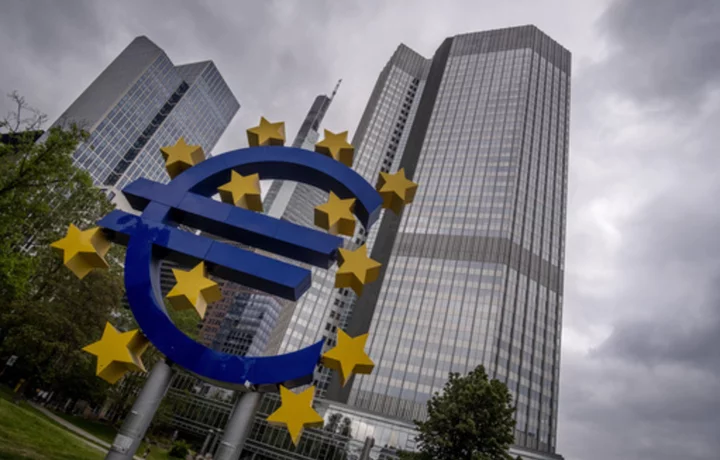
Ready for a digital euro? At 25, European Central Bank preps for future of money
Proposals for a digital European currency are taking shape
2023-05-24 17:23
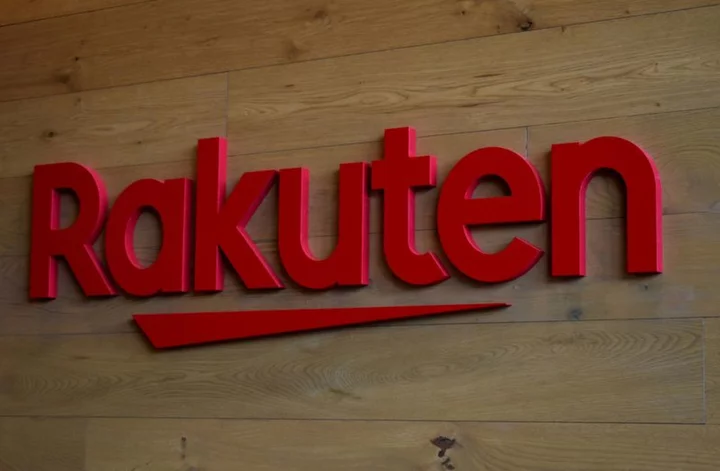
Japan's Rakuten set to raise $2.18 billion through share issue
TOKYO (Reuters) -Japanese e-commerce and fintech conglomerate Rakuten Group Inc will raise up to 294.2 billion yen ($2.18 billion) by
2023-05-24 17:20
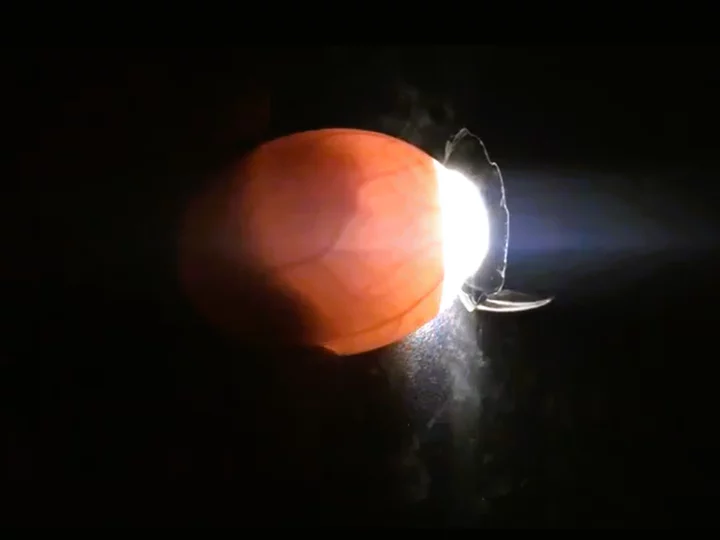
What is superintelligence? How AI could replace humans as the dominant lifeform on Earth
In the ‘Unfinished Fable of the Sparrows’, a group of small birds come up with a plan to capture an owl egg and raise the chick as their servant. “How easy life would be,” they say, if the owl could work for them, and they could live a life of leisure. Despite warnings from members of their flock that they should first figure out how to tame an owl before they raise one, the sparrows devote all their efforts to capturing an egg. This tale, as its title suggests, does not have an ending. Its author, Swedish philosopher Nick Bostrom, deliberately left it open-ended as he believes that humanity is currently in the egg hunting phase when it comes to superhuman AI. In his seminal work on artificial intelligence, titled Superintelligence: Paths, Dangers, Strategies, the Oxford University professor posits that AI may well destroy us if we are not sufficiently prepared. Superintelligence, which he describes as an artificial intelligence that “greatly exceeds the cognitive performance of humans in virtually all domains of interest”, may be a lot closer than many realise, with AI experts and leading industry figures warning that it may be just a few years away. On Monday, the creator of ChatGPT echoed Professor Bostrom’s 2014 book by warning that the seemingly exponential progress of AI technology in recent years means that the imminent arrival of superintelligence is inevitable – and we need to start preparing for it before it’s too late. OpenAI boss Sam Altman, whose company’s AI chatbot is the fastest growing app in history, has previously described Professor Bostrom’s book as “the best thing I’ve seen on this topic”. Just a year after reading it, Mr Altman co-founded OpenAI alongside other similarly worried tech leaders like Elon Musk and Ilya Sutskever in order to better understand and mitigate against the risks of advanced artificial intelligence. Initially launched as a non-profit, OpenAI has since transformed into arguably the leading private AI firm – and potentially the closest to achieving superintelligence. Mr Altman believes superintelligence has the potential to not only offer us a life of leisure by doing all the majority of our labour, but also holds the key to curing diseases, eliminate suffering and transforming humanity into an interstellar species. Any attempts to block its progress, he wrote this week, would be “unintuitively risky” and would require “something like a global surveillance regime” that would be virtually impossible to implement. It is already difficult to understand what is going on inside the ‘mind’ of AI tools currently available, but once superintelligence is achieved, even its actions may become incomprehensible. It could make discoveries that we would be incapable of understanding, or take decisions that make no sense to us. The biological and evolutionary limitations of brains made of organic matter mean we may need some form of brain-computer interface in order to keep up. Being unable to compete with AI in this new technological era, Professor Bostrom warns, could see humanity replaced as the dominant lifeform on Earth. The superintelligence may then see us as superfluous to its own goals. If this happens, and some form of AI has figured out how to hijack all the utilities and technology we rely upon – or even the nuclear weapons we possess – then it would not take long for AI to wipe us off the face of the planet. A more benign, but similarly bleak, scenario is that the gulf in intelligence between us and the AI will mean it views us in the same way we view animals. In a 2015 conversation between Mr Musk and scientist Neil deGrasse Tyson, they theorised that AI will treat us like a pet labrador. “They’ll domesticate us,” Professor Tyson said. “They’ll keep the docile humans and get rid of the violent ones.” In an effort to prevent this outcome, Mr Musk has dedicated a portion of his immense fortune towards funding a brain chip startup called Neuralink. The device has already been tested on monkeys, allowing them to play video games with their minds, and the ultimate goal is to transform humans into a form of hybrid superintelligence. (Critics note that even if successful, the technology would similarly create a two-tiered society of the chipped, and the chipless.) Since cutting ties with OpenAI, the tech billionaire has issued several warnings about the imminent emergence of superintelligence. In March, he joined more than 1,000 researchers in calling for a moratorium on the development of powerful AI systems for at least six months. That time should then be spent researching AI safety measures, they wrote in an open letter, in order to avert disaster. It would take an improbable consensus of leading AI companies around the world, the majority of which are all profit-seeking, in order for any such pause to be impactful. And while OpenAI continues to spearhead the hunt for the owl’s egg, Mr Altman appears to have at least heeded the warnings from Professor Bostrom’s fable. In a 2016 interview with the New Yorker, he revealed that he is a doomsday prepper – specifically for an AI-driven apocalypse. “I try not to think about it too much, he said, revealing that he has “guns, gold, potassium iodide, antibiotics, batteries, water [and] gas masks” stashed away in a hideout in rural California. Not that any of that will be much use to the rest of us. Read More 10 ways AI will change the world – from curing cancer to wiping out humanity Photoshop unveils ‘extraordinary’ AI that transforms your pictures with a text prompt ChatGPT creator issues stark warning on AI ‘RIP photoshop’: New AI can alter any photo with the click of a mouse
2023-05-24 17:18
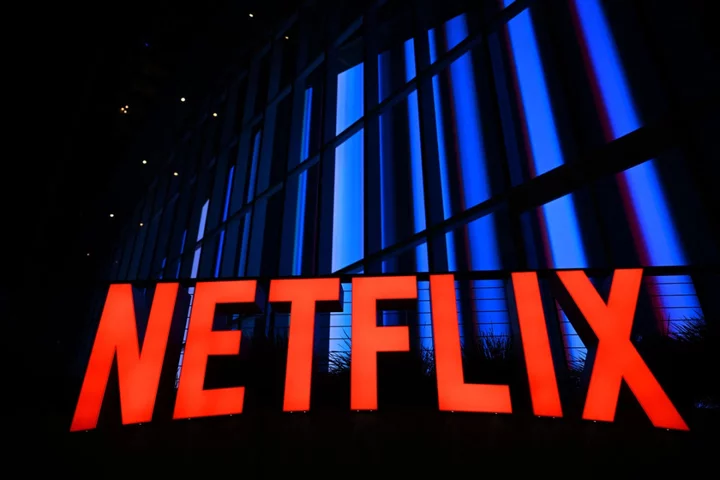
Netflix launches account and password sharing crackdown in US and UK
Netflix is launching its long-threatened password sharing crackdown in the UK. The company is writing to members who are sharing Netflix accounts and telling them that they will no longer be permitted to do so. Instead, they will be encouraged to “transfer a profile” so that users can have their own standalone accounts, or “buy an extra member”, which will let people who don’t live in a household be added for £4.99 a month. “Your Netflix account is for you and the people you live with – your household,” the email sent to problem accounts reads. The message will only be sent to those suspected of currently sharing their accounts. Netflix has not revealed exactly how it is tracking those it believes to be sharing passwords with people outside their households. But it says that it is watching for telling “account activity”, based on IP addresses and devices IDs, which might for instance indicate that an account is being used in two very different places at once. It stressed that the crackdown will not apply to those who are using their account for travelling. “You can easily watch Netflix on the go and when you travel – either on your personal devices or a TV at a hotel or holiday home,” the email reads. Users who are affected are encouraged to go to Netflix’s help centre. But the email also offers a variety of ways to deal with the problems. First, users are encouraged to “control how your account is used” by checking who is currently accessing their account. Netflix has a web page that will show what devices are currently logged into an account, and that same page can be used to kick them out of an account – after which the company encourages changing the password so that any old devices cannot log back in. If those people sharing an account are doing so with permission, however, Netflix is offering a variety of options. The transfer a profile tool will mean that users can set up a new, separate account but keep their watch history and other details, or the “buy an extra member” tool essentially lets someone outside the home have permission to share an account for less than the price of a full membership. Netflix has been gradually rolling out its password sharing crackdown across the world, beginning in Latin America and since expanding to other regions including Spain and Portugal. It has not said how it is deciding which countries are chosen to be hit by the new crackdown. The move is one of a range of changes from Netflix as it attempts to deal with slowing rates of subscriber growth that have led it to look for new ways to boost profitability. It has said that it believes some 100 million people around the world are using other people’s Netflix accounts – and that encouraging at least some of those to sign up could deal with those falling rates of signups. In its results call in April, Netflix said that early tests had shown that the crackdown was successful in encouraging people to sign up for their own accounts. While customers initially cancelled their accounts in response to the news, membership and revenue then rose after that as people started paying for their own logins, said co-chief executive Greg Peters. He also noted then that testing had revealed some problems with the crackdowns, including users complaining that they were being targeted when they were using the app on the go or while on holiday. Netflix had updated the technology underpinning the new rules in response to those complaints, he said – and it was those improvements that had given it confidence to launch the crackdown more broadly. Read More Netflix begins crackdown on password sharing in the UK and US Netflix begins sending emails to UK customers about account sharing Who is David Sacks: the controversial entrepreneur hosting DeSantis 2024 event Who is David Sacks: the controversial entrepreneur hosting DeSantis 2024 event Male characters in role-playing video games ‘speak twice as much as females’ Peloton undergoes huge rebrand
2023-05-24 15:54
